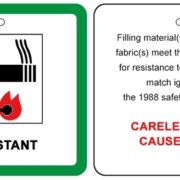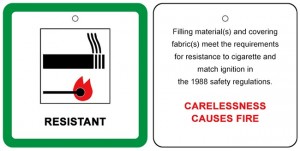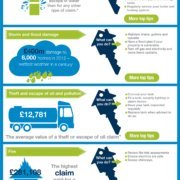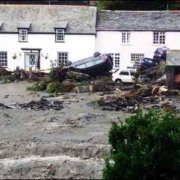 More than 400 million people login to the photo sharing app Instagram every single day, and as a result one thing that a growing number of us will take for granted is the ability to quickly and easily edit our photos, add a filter and improve their quality, all with just a few flicks of our finger on a smart phone screen.
More than 400 million people login to the photo sharing app Instagram every single day, and as a result one thing that a growing number of us will take for granted is the ability to quickly and easily edit our photos, add a filter and improve their quality, all with just a few flicks of our finger on a smart phone screen.
It’s not just reserved to our own personal photos either; many of the photographs gracing glossy magazines and daily papers are now enhanced to ensure they’re looking their best.
This is however no modern phenomenon; the process of enhancing photos has actually been around for decades, but is now becoming increasingly common in estate agency, and more recently in the marketing of holiday letting properties.
So what are your options when it comes to making sure that your photos really are doing your holiday cottage justice?
Why would you need to enhance your holiday letting property images?
The online world in which we market our cottages is becoming increasingly instantaneous; more than 50% of all traffic will now arrive to a cottage site from a smart phone. People want information and they want it quickly; this places a perennial pressure on the instant impact that a great photograph can make.
A photograph really can make or break an online booking decision.
We also need to bear in mind that the great British weather won’t always play ball; how often do cottage owners book in that professional photographer only to be scuppered by dark skies and rain?
So what can you do to make your holiday letting property images as good as they can be and just how much can they be altered to do you justice?
What sort of thing might you want to change?
It’s important to state here that you’re not going to be able to alter things beyond recognition, nor are you going to want to when it comes to managing the expectations of paying guests. There are, however some aspects that can be tinkered with in order to tip the booking balance in your favour.
Interior issues
Getting great photos of the interior rooms of a property is notoriously tricky and why a specialist professional photographer is worth their weight in gold when shooting them. A photo enhancing service will be able to easily adjust exposure, shadows, colours and the saturation of your photo.
Rooms can essentially be made to feel as light and airy as they are in real life, which is great if the rain clouds arrived along with your photographer.
Handling those rain clouds
Once they’re finished inside, you’re still going to want some external shots of your cottage. A blue sky adds something to every holiday home, and the good news is that the sky can easily be changed to slightly sunnier times.
Visitor cars and other large objects
For most cottages, you’ll want to take your photos in the summer when the leaves are green, the grass is cut and everything is looking at its very best. There-in lays an age-old problem; how do you take the best photos you can when there are guests around?
Issues such as cars parked in the drive, children’s toys scattered across the lawn or wetsuits splayed across a fence are all things that will detract from the perfect picture. The good news again is that these can be edited out of your photo by enhancing services, providing you with the perfect combination of taking a photo at the best time of the year, whilst not having to worry about your guests.
There are a number of photo editing solutions and services out there; as always make sure you get a few quotes to ensure you’re getting the best possible price, and also ask to see some examples of their previous work (including before and after shots).
If this all sounds like too much trouble all good holiday home letting agents will be able to offer these services as part of their package. This tends to be either in house or by using professional freelance photographers and editing services.
Boshers offer specialist holiday home insurance to owners across the UK. For information on how we can help and support your holiday home business call us on 01237 429444.



 For a long time now we’ve been told that content is king; not only does Google love it, potential guests enjoy reading it and engaging with what you’re sharing in your
For a long time now we’ve been told that content is king; not only does Google love it, potential guests enjoy reading it and engaging with what you’re sharing in your 
 Destinations are the places we all fall in love with; the home to our holidays and the areas we all want to visit and experience. The word ‘experience’ is the key here; it’s not just about a
Destinations are the places we all fall in love with; the home to our holidays and the areas we all want to visit and experience. The word ‘experience’ is the key here; it’s not just about a 
 The consequences of a fire in your holiday home can be catastrophic and in some cases fatal; in the last year there were 322 fire related deaths across Great Britain, and whilst this figure is significantly down on the 1988 high of 731, there are on average 39,600 reported dwelling fires every 12 months.
The consequences of a fire in your holiday home can be catastrophic and in some cases fatal; in the last year there were 322 fire related deaths across Great Britain, and whilst this figure is significantly down on the 1988 high of 731, there are on average 39,600 reported dwelling fires every 12 months.
 Biomass – the benefits and pitfalls for heating your holiday home
Biomass – the benefits and pitfalls for heating your holiday home




